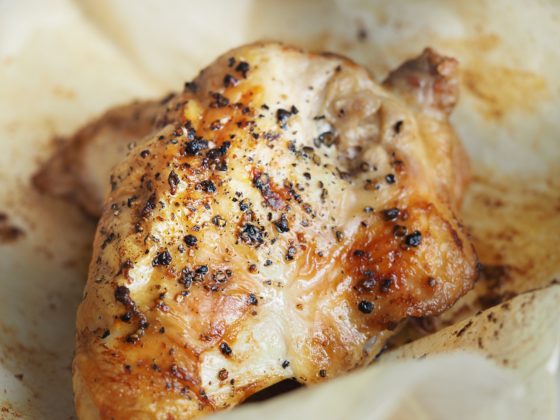What’s the Best Diet During Pregnancy? To Meat or Not to Meat

Most health experts advocate against the consumption of raw meat and fish during pregnancy, so the daily yellowtail rolls need to be put on hold. But these same experts strongly support a balanced diet inclusive of a moderate amount of meat and even dairy products such as yogurt.
But is meat really that important to a good pregnancy diet? What are the potential risks of refraining from meat-eating while you’re expecting? Are there meats that are unsafe during pregnancy?
Contents
Possible Risks of Avoiding Meat During Pregnancy
Missing key nutrients is one risk of avoiding meat during pregnancy. Protein and iron are two crucial nutrients found in meat sources, but vegetable sources can be equally if not more effective. So, vegetarian mothers-to-be don’t necessarily have to eat meat to get these vital nutrients; they simply need to be more mindful of their food choices and make sure they include sources of protein (like lentils) and iron (like broccoli).
Furthermore, you don’t need a milk mustache to get your daily dose of calcium. You can toss up a tasty stir-fry of Chinese cabbage and get enough of the bone-building nutrient.
So, if you can get nutrients traditionally sourced from meat in vegetable form, does a carnivorous diet really matter?
See also: Is a Vegan Diet Safe During Pregnancy?
Vegetarian Diet in Pregnancy Linked to Substance Abuse in Offspring
Researchers from San Diego, Chicago, the United Kingdom, and the US National Institute on Alcohol Abuse and Alcoholism recently uncovered alarming results in a joint study. More than 10,000 teenagers were interviewed about their drug and alcohol habits, after which researchers questioned their mothers about their diets during pregnancy. The results showed a strong correlation between low levels of meat consumption in pregnant women and high levels of substance abuse in adolescents.
Researchers attribute this finding to a lack of B12, a vitamin which does not exist naturally in a vegetarian diet. Vitamin B12 is linked to brain development, which may partially explain why teenagers born to mothers with this vitamin deficiency seek out drugs and alcohol at higher levels.
Furthermore, it is not just teenagers who may be affected by a mother’s lack of B12; infants often suffer consequences as well. According to the National Institutes of Health (NIH):
“Women with the lowest B12 levels had 5 times the risk of having a child with a neural tube defect compared to women with the highest B12 levels. Women who consume little or no meat or animal based foods are the most likely group of women to have low B12 levels…”
These neural tube defects (which may affect the brain or spine) generally occur during the first month of pregnancy, which is why a balanced prenatal diet is also key. Yes, vitamin B12 is available in pill form, but live food sources may be more potent.
However, not all meat sources are created equal, and there are some that can do serious harm to your unborn baby.
See also: Can Obesity Before Pregnancy Cause Cerebral Palsy?
Meats that Could Be Dangerous During Pregnancy
There are several foods that nutritionists advise against consuming during pregnancy due to the risk of food-borne illness. Raw eggs, for example, carry a high risk of salmonella, which could land you in the hospital.
Here are a few types of meat you should avoid; we have a comprehensive list of foods to avoid during pregnancy on Safe Birth Project, as well.
Deli Meats
Popular lunchtime cold cuts like sliced turkey and roast beef may contain listeria, a type of bacteria that has been known to cause miscarriages.
Undercooked Meat
You already know it’s best to stay away from raw meat, but undercooked meat, like a rare sirloin, can be just as dangerous with many types of bacteria possibly present.
Smoked Meats
The smoking process in breakfast staples like hickory bacon adds a pop of flavor, but, like deli meats, smoked products may contain listeria.
Pate and Meat Spreads
This gourmet specialty is one more type of food that poses a significant listeria threat and could lead to infection in your unborn child.
Seafood
Seafood carries a wide variety of risk: uncooked, smoked, and shellfish. Sushi may carry toxoplasmosis, coliform bacteria, and salmonella, while smoked seafood may contain listeria. Canned seafood is usually safe to eat. Shellfish, both cooked and raw, are not safe during pregnancy due to the algae shellfish feeds on, which may contain toxic byproducts. Say goodbye to oysters, mussels, scallops, shrimp, and crab for now.
What’s safe to eat during pregnancy?
After reading a list like that, you may wonder just what is safe to eat? A whole foods diet including well-cooked meat sourced from local, organic farms is advisable. Some women may be able to maintain their vegan or vegetarian diet in conjunction with a qualified physician or nutritionist’s plan. Many moms, like actress Alicia Silverstone, have delivered healthy babies after adhering to a vegan diet.
So, what is the best diet during pregnancy? A healthy pregnancy diet may look very different from one woman to another, and you should always rely on the trusted advice of a medical professional before making any drastic changes.
As you make the best food choices possible for you and your baby, remember that a healthy diet of fresh foods is an essential step on your journey to motherhood. Here’s to your health!
You may also be interested in:








Leave a Reply
Want to join the discussion?Feel free to contribute!